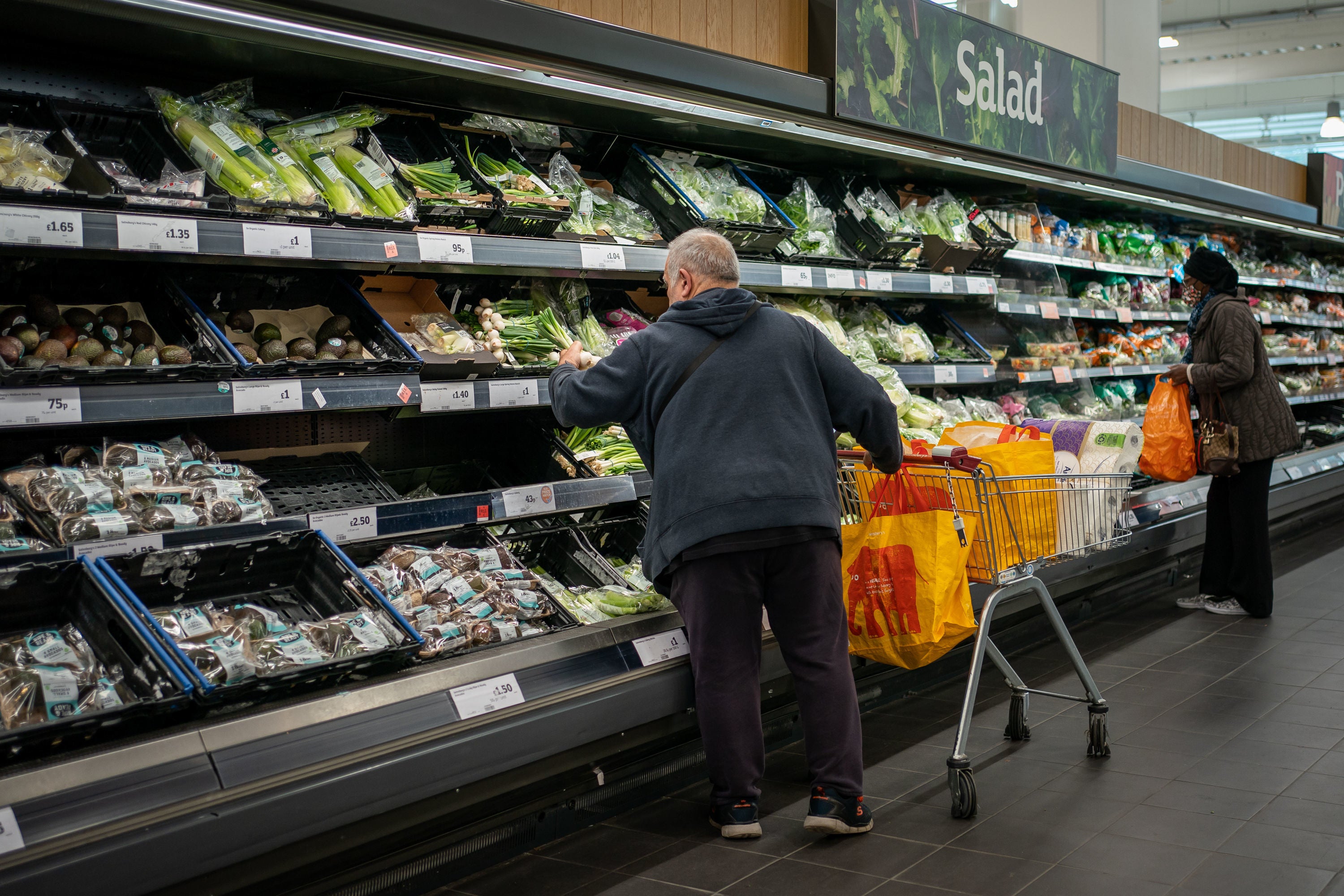The politics of inflation have changed – and the pressure is on
Voters now hate inflation. They are frightened and angry, and politicians will get the blame, writes Hamish McRae


The economics of inflation remain confused. but the politics have become abundantly clear. Economists and central bankers are still debating how far inflation will rise, and how best to tackle it. Some central banks, including the Bank of England and the US Federal Reserve have started to increase interest rates, whereas others, notably the European Central Bank, have not.
But there is no debate to be had about the politics. Voters hate it. They are frightened and angry, and politicians will get the blame. Support for Marine Le Pen this weekend seems to have risen thanks to her attacks on the rising cost of living in France, whereas Emmanuel Macron appears aloof to the worries of ordinary people.
In the US, the Democrats are under pressure, with Joe Biden slumping in the polls. And here in the UK, a sense that the wealthy are not so damaged by inflation as ordinary people may have contributed to the pressure on Rishi Sunak, and the sense of outrage over his family’s tax arrangements.
This hatred of inflation is new. When prices were rising by 2 per cent or 3 per cent a year, it was quite welcome. Over time, even inflation at that sort of rate whittles away people’s savings, transfers wealth from renters to homeowners, and from the relatively poor to the relatively rich.
Since 2000, inflation in the UK has averaged only 2.8 per cent a year. But according to the Bank of England’s inflation calculator, to buy £100 worth of goods and services would have cost £179.10 last year. By the end of this year, the cost will be close to £200.
But everyone enjoyed the money illusion – thinking they were richer as their nominal wealth (including house prices) went up, even though in real terms they weren’t, or at least not by much. Tacking unemployment was a more important political priority, and borrowers, particularly people with mortgages, seemed to attract more sympathy than savers.
In social terms, the impact of creeping inflation over a long period was deeply corrosive, for it helped sophisticated savers who borrowed and built up assets, and hurt those who kept their money in a bank account. But in political terms this did not seem to matter.
Now this has all changed. Inflation in house prices was becoming unpopular even before the surge this year. The fact that young people could not save enough to buy their first home pushed the UK government to create a string of schemes to try to support home ownership. But while falling home ownership became a political issue several years ago, and the government’s efforts to reverse it attracted criticism from many directions including the independent Institute for Fiscal Studies, current inflation remained low. So there was little pressure to challenge the widespread view that very low interest rates were necessary to keep the economy moving – even if they helped fuel higher house prices.
So what is different? One obvious thing is that inflation is no longer 2 per cent or 3 per cent. The March inflation figures will be a shocker everywhere. We will receive numbers for the UK and US this week. The Bank of England expects a peak of “around 8 per cent”. Market estimates are for 8.5 per cent in the US, and in Germany, the Federal Statistical Office thinks it will be 7.2 per cent there.
But I don’t think the shift in the mood is simply the result of these troubling numbers. Last autumn, when Joseph Powell was seeking another term as chair of the US Federal Reserve, I understand he was told by the administration that if he wanted to stay at the Fed, he and his colleagues had to do something about inflation. If that is right, the big shift in political mood, at least in the US, took place before the current surge in the numbers.
To keep up to speed with all the latest opinions and comment, sign up to our free weekly Voices Dispatches newsletter by clicking here
Moreover, there are probably two main drivers, both of which apply to the UK as well. One is that inflation hits the poorest hardest. The biggest increases are in food and fuel, both of which account for a larger part of the household budgets of poor families than they do of wealthier ones. Work by the Resolution Foundation highlighted this in the UK.
The second is that concern about unemployment has diminished dramatically in both the US and UK. Unemployment in the US is down to 3.6 per cent. In the UK it is 3.9 per cent. These are the lowest levels for a generation.
The pressure is now on governments to consider the huge numbers of people in work and to make sure their earnings are not cut so savagely by inflation, rather than to focus on the much smaller numbers of people not in jobs. It is harsh to put it in those terms, for the unemployed are seeing their incomes cut too. But that, for the moment, is the political mathematics.
Eventually inflation will come down. Can it be brought down without a recession, and rising unemployment? That, I fear, will be the next challenge.






Join our commenting forum
Join thought-provoking conversations, follow other Independent readers and see their replies
Comments